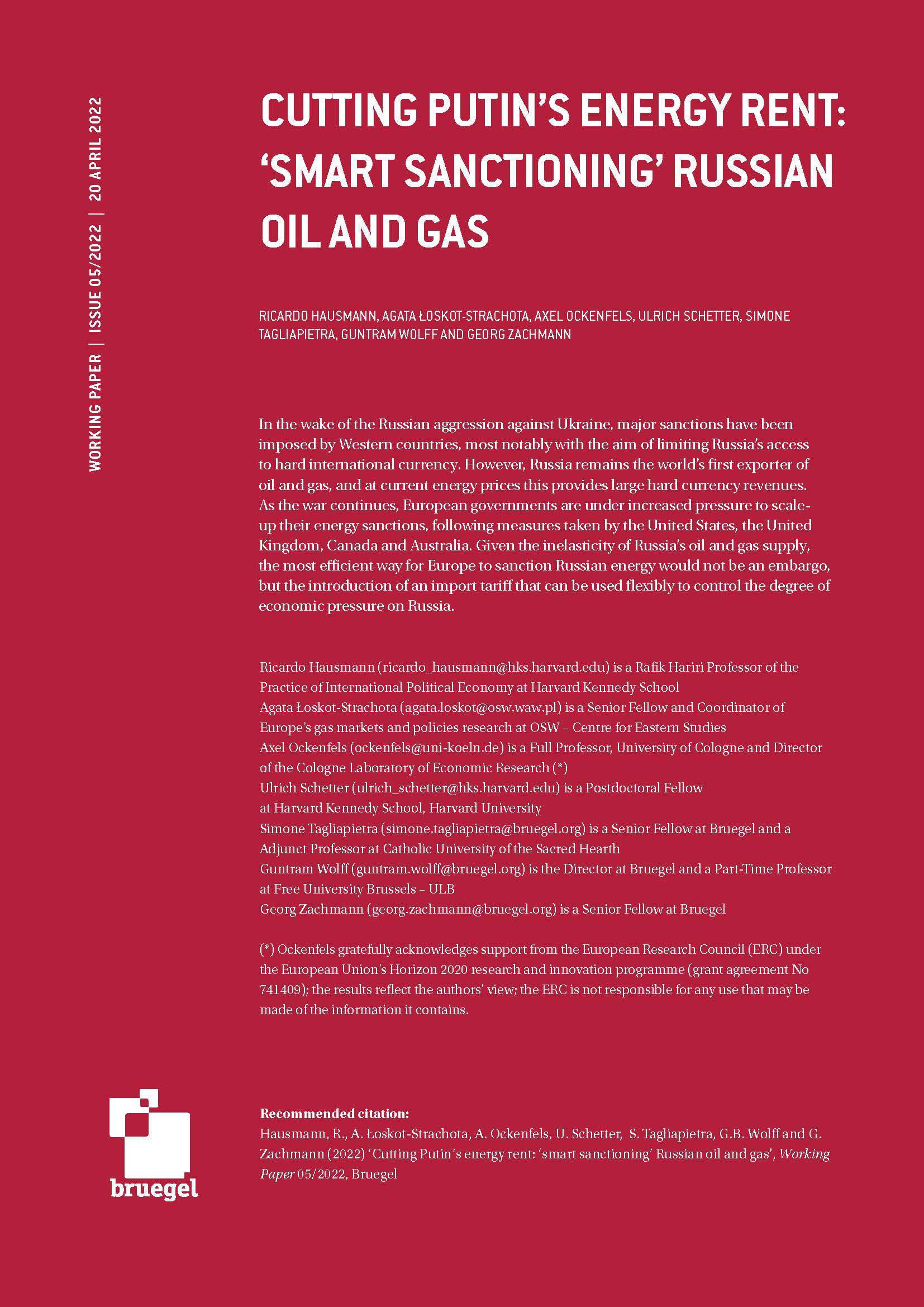Working Paper
Cutting Putin’s energy rent: ‘smart sanctioning’ Russian oil and gas
The most efficient way for Europe to sanction Russian energy would not be an embargo, but the introduction of an import tariff that can be used flexibly to control the degree of economic pressure on Russia.
In the wake of the Russian aggression against Ukraine, major sanctions have been imposed by Western countries, most notably with the aim of limiting Russia’s access to hard international currency. However, Russia remains the world’s first exporter of oil and gas, and at current energy prices this provides large hard currency revenues. As the war continues, European governments are under increased pressure to scale-up their energy sanctions, following measures taken by the United States, the United Kingdom, Canada and Australia. Given the inelasticity of Russia’s oil and gas supply, the most efficient way for Europe to sanction Russian energy would not be an embargo, but the introduction of an import tariff that can be used flexibly to control the degree of economic pressure on Russia.
Recommended citation:
Hausmann, R., A. Łoskot-Strachota, A. Ockenfels, U. Schetter, S. Tagliapietra, G.B. Wolff and G.Zachmann (2022) ‘Cutting Putin’s energy rent: ‘smart sanctioning’ Russian oil and gas’, Working Paper 05/2022, Bruegel










